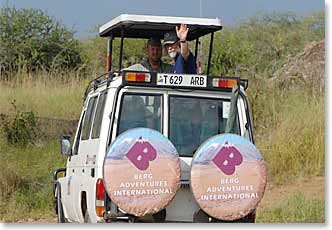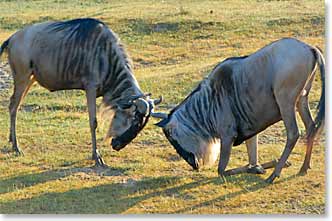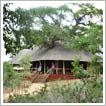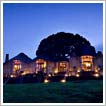
Tanzania Wildlife Safari FAQ
Here is where you will find answers to some of your questions about this expedition. If you do not find what you need here, please contact us at info@bergadventures.com.
Choose the specific question to link to your answer
- Are internet dispatches done for all of your safari trips?
- Which trip dates occur during the warmer season?
- When is the rainy season?
- Which dates generally have the most people signed up?
- What are the accommodations like on the safari?
- What type of vehicle is used on safari?
- On the safari, how is the drinking water situation handled?
- Do you have access to radio communications for any emergency needs if one were to arise?
- Should I bring gifts for local Children?
- What language is spoken in Tanzania
- 1. Are internet dispatches done for all of your safari trips?

- They can certainly be done for any of our safaris at no extra cost. If your group chooses to do one, a phone will be provided along with a dispatch line which you can use to post news of your adventure. We ask only that you remember that these accounts will be read all over the world and are of great interest to people. They will also be permanently archived at www.bergadventures.com, so you will always have a record of your Tanzanian adventure. The dispatches are intended for you to tell people who are watching about what is going on during your safari. Check one of our dispatches so that you can have an idea of how it works.
- 2. Which trip dates occur during the warmer season?

- This is a good question. Even though it is only about 3 degrees south of the Equator, Northern Tanzania has surprisingly variable temperatures through different times of the year. The locals generally refer to July and August as “winter” and it is the coolest time of the year in Arusha. Night time lows are typically about 48F (9C) and daytime highs are only in the 60's or 70's (16C - 24C). You are probably thinking that these sound like very pleasant temperatures, and you are right. One thing we always tell people is "if you leave North America in the summer months and travel to East Africa you are going to a cooler climate." This is surprising to most people, but very true. Safari and the time you spend in Arusha during these months can be wonderful in terms of weather - never as hot and steamy as you probably imagine tropical Africa to be. Similarly, if you are on a trip during the Northern Hemisphere winter, you will find the weather to be as much influenced by altitude as latitude. It is warmer in December or February, but it is still not extremely humid or hot.
- 3. When is the rainy season?

- All of our safaris avoid the two rainy seasons in Tanzania, the "long rains" in April and May and the "short rains" from late October through November. With unpredictable weather at the higher elevations, and Ngorongoro Crater, some light rain is can happen throughout the year.
- 4. Which dates generally have the most people signed up?

- The most popular months for safari are July and August, with December running a close third. You will see fewer people from other groups in months other than July, August or December. At BAI we take pride in the fact that we use private vehicles so thatou will have a great trip any time of the year you decide to go with us.
- 5. What are the accommodations like on the safari?

- This is our favourite question. For years we have been telling people "the safari lodges are really nice" and then we watch the astonished looks when people walk into our lodges and exclaim "You didn't tell us it was going to be this nice." We use these places to relax. They really are beautiful in terms of setting and amenities.
- The safari drives have their own demands, long dusty days and a lot of excitement and adventure with all the wildlife. One of the greatest feelings is to go into your room at the end of one of these days, get a shower and some clean clothes on, and go have a nice dinner with your friends. The sun will be setting on the African landscape and the large glass windows will scarcely separate you from this. It is pretty civilized. We do offer upgrades to the very exclusive small safari camps such as Migration Camp in Serengeti. Contact our office to discuss pricing and availability.
- 6. What type of vehicle is used on safari?

- You will be in a Land Cruiser, maximum 6 per vehicle. This is your private safari; there will be no new members of the team joining your safari unless it has been previously arranged by your group. An experienced Guide/Driver will drive your vehicle. He is the only person who ever drives his vehicle and is responsible for its complete safe operation and maintenance for the 2 to 3 years it sees service after it is purchased. Everyone in the back is under a canopy that extends up so that you can stand for wildlife viewing and photography while you are in the parks.

- 7. On the safari, how is the drinking water situation handled?

- On safari bottled water is available everywhere and treated in all of the lodges.
- 8. Do you have access to radio communications for any emergency needs if one were to arise?

- We carry a cell phone and a radio on safari. All our trips are run in our normal, self contained expedition style. Complete medical kits and the equipment necessary to deal with emergencies travels with us. Our staff on safari stays in daily contact with both our Arusha office and our North American office, so if there should be an emergency message from your home it would get to you quickly.
- 9. Should I bring gifts for local Children?

- We find that a smile, genuine interest in people and a willingness to talk to them, perhaps some photographs of your family or postcards of where you live to be the greatest things to bring to share with the people of Tanzania. Tanzanians are generally poor, but very dignified and proud. We know parents in Tanzania who worry because they know that children will skip school to go stand along the roadsides and beg tourists for pencils or candy. You don’t have to worry, there are enough pencils and pens in the schools; the bigger problem is to get children to go to school and not become distracted by tourists who give things away.
- 10. What language is spoken in Tanzania

- Tanzanians are proud that the vast cultural and ethnic diversity of their 130 tribes is unified under the national language, Swahili. English is the official second language of the country and is primary language of business and secondary education.





